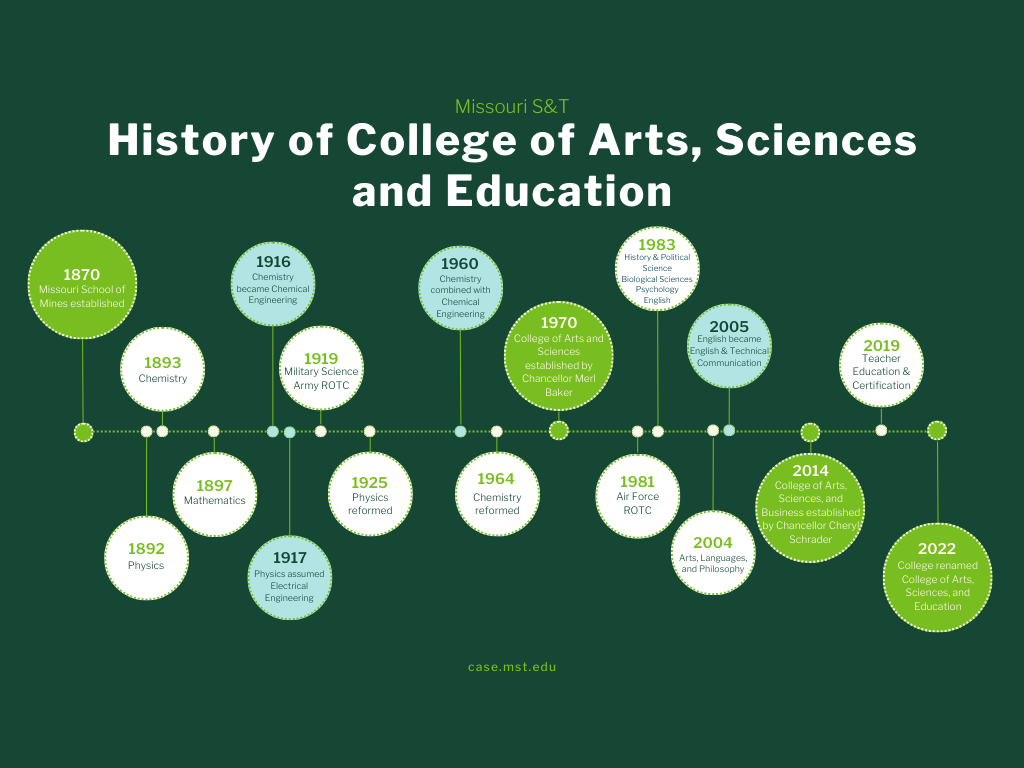History of College of Arts, Sciences, and Education
Combining the Division of Liberal Arts and the School of Science, Chancellor Merl Baker established the first College of Arts and Sciences in 1970. He selected physicist Harold Q. Fuller as the college’s first dean. Chancellor Baker explained, “This strengthening of the arts and sciences program is a most important step in the continuing development of UMR into a truly outstanding institution of higher education.”
Over the next 35 years, faculty members from many different disciplines filled the position of dean and interim dean: chemists Adrian Daane and Marvin W. Barker, philosopher Wayne Cogell, mathematicians Glen Haddock and John Fulton, historian Russell Buhite, and biologist Paula Lutz. In 2007, to streamline the administration of the university, Chancellor John F. Carney eliminated the College of Arts and Sciences along with the Schools of Engineering, Management and Information Systems, and the School of Materials, Energy, and Earth Resources.
However, in 2014, Chancellor Cheryl Schrader established a College of Engineering and Computing and a College of Arts, Sciences, and Business (CASB). This new college, under the leadership of biologist Stephen Roberts, included Air Force ROTC, Army ROTC, Arts, Languages and Philosophy, Biological Sciences, Business and Information Technology, Chemistry, Economics, English and Technical Communication, History and Political Science, Mathematics and Statistics, Physics, and Psychological Science.
Following English professor Kathleen Drowne’s three-year tenure as interim dean, political scientist Mehrzad Boroujerdi became dean in 2022. The College of Arts, Sciences, and Education (CASE) is now made up of eleven units including Air Force ROTC, Army ROTC, Arts, Languages and Philosophy, Biological Sciences, Chemistry, English and Technical Communication, History and Political Science, Mathematics and Statistics, Physics, Psychological Science, and Eductaion.
The college currently has some 91 tenured/tenure-track and 44 non-tenure-track faculty members. CASE offers more than 85 different academic options including certificates, minors, bachelor’s, master’s, and doctoral degrees.


Follow College of Arts, Sciences, and Education